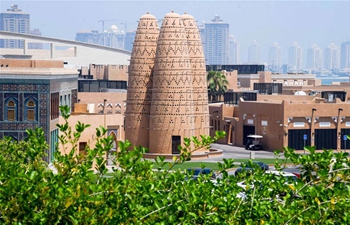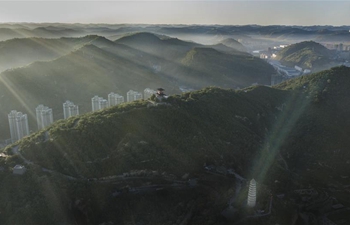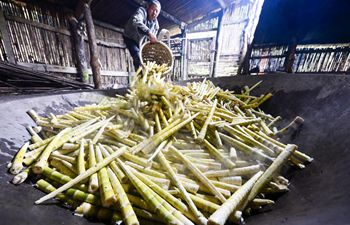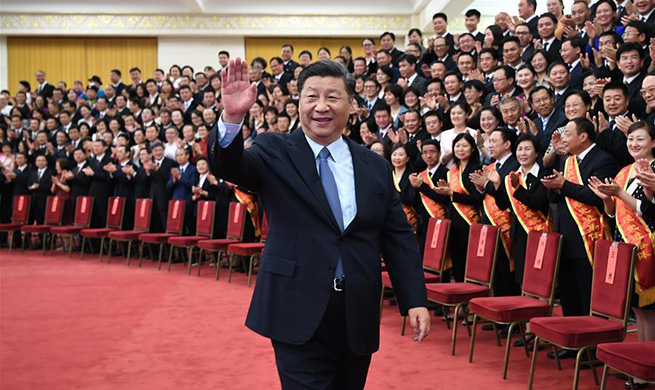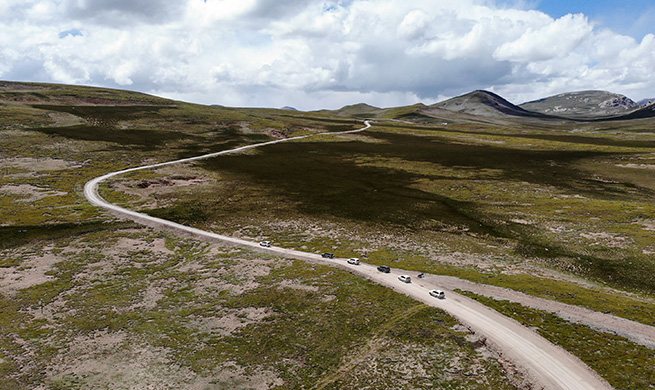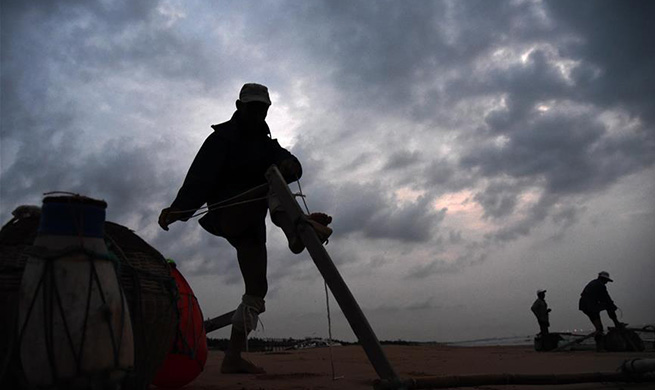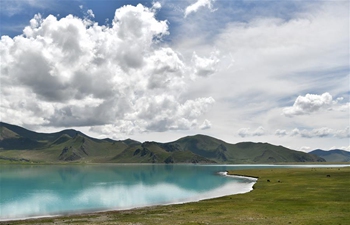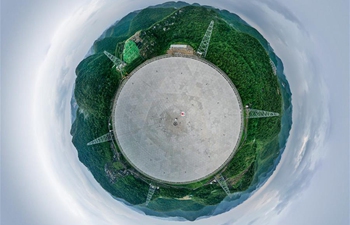ROME, Sept. 2 (Xinhua) -- A controversial plan by a small town in Italy to transform the crypt holding the remains of the country's fascist leader Benito Mussolini into a tourist attraction is casting new light on Mussolini's legacy as the political movement he founded inches back into fashion.
Mussolini - identified by fascists as Il Duce ("The Leader") -- was born and is buried in the town of Predappio in the Emilia-Romagna region around 80 kilometers (50 miles) southeast of Bologna, the regional capital.
The San Cassiano in Pennino cemetery already attracts a trickle of Mussolini admirers and curious tourists, especially around key dates, such as Mussolini's July 29 birthday, the Apr. 28 anniversary of his death, and on Oct. 28, the date of Mussolini's 1922 March on Rome.
Predappio Mayor Roberto Canali said opening the crypt could improve the economic prospects for the town of around 6,500 residents.
"It would help bring in tourists," Canali said. "I am not the only one who thinks it would help our small municipality, especially our bars and restaurants. The increase would benefit the surrounding area as well, where some operators are working on wine and food itineraries and other initiatives."
The crypt had been open to the public on limited terms until around two years ago, and it is still opened occasionally for visitors who make arrangements well in advance. But the new plan, which is backed by Mussolini's relatives, would keep it open on a permanent basis and include promotional schemes.
Critics of the idea say it would turn the crypt into a place of pilgrimage for those with a nostalgia for Mussolini's oppressive fascist governing style.
"I have no patience for Mussolini apologists and those who might be attracted to the crypt out of a kind of nostalgia for fascism," said Emilio Ricci, an attorney and the national vice president of Italy's Association of Partisans, a group founded by Italians who fought against fascism during Mussolini's 1922-1943 reign.
"Mussolini led Italy into World War Two, he murdered his critics, and he destroyed the country in ways we are still recovering from," Ricci told Xinhua.
Membership in neo-fascist groups is on the rise in Italy, as right-wing political groups claim growing public support.
Three of Mussolini's descendants are now active in Italian politics: 56-year-old granddaughter Alessandra Mussolini is a former member of the Italian Chamber of Deputies, Senate, and the European Parliament; another granddaughter, Rachele Mussolini, 44, is a municipal councilor for the City of Rome; and the fascist leader's 52-year-old great-grandson, Caio Giulio Cesare Mussolini, ran unsuccessfully for a seat in the European Parliament this year.
FAMILY GIVES FORMAL BLESSING
The family has given its formal blessing to Predappio's plan to open and promote the crypt to tourists.
"It is good, as long as the dignity of the place can be maintained even with many visitors coming," Caio Giulio Cesare Mussolini told Italian reporters.
Alessandra Mussolini agreed: "We will soon announce detailed plans," she said. "There is so much pressure to have (the crypt) re-opened and we decided to welcome the idea."
Ricci said nostalgia for fascism is on the rise at least in part because the generation of Italians who can remember it first-hand is dying off.
"People who say they admire fascism now are too young to remember it," Ricci said. "It is important that fascism should be studied and understood, but as a way to recognize how it changed the country and to understand its errors. It should not be studied in order to romanticize it."

